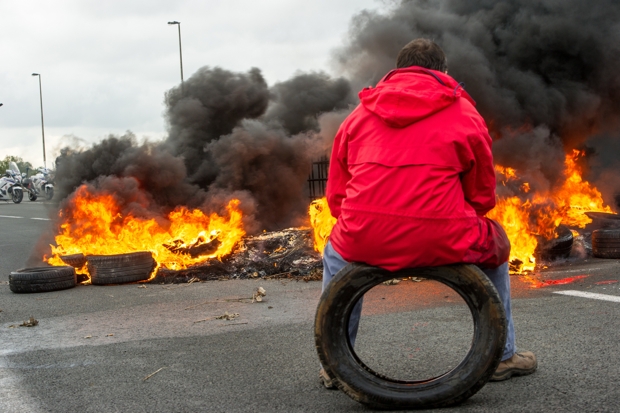The right to free movement of people and goods across the EU is, as we keep being told when the government proposes to trim benefits for Romanians, a fundamental and inalienable principle of the Treaty of Rome. Why then does the European Court of Justice show no interest in the French ferry workers whose strike has led to 30 miles of tailbacks either side of the Channel? There could scarcely be a more brazen example of free movement being thwarted, and yet there seems to be no sign of ferry workers, their union or the French government being taken to court, ordered to let the lorries through or subjected to any other kind of sanction whatsoever.
The right to free movement is not really inalienable at all. It is trumped by workers’ rights. The Treaty of Rome demands ‘the abolition, as between Member States, of obstacles to freedom of movement for persons, services and capital’. But if it were accurately to reflect how the EU works in practice this would be followed with an asterisk, referring the reader to a footnote saying:
*This provision shall not apply in cases where a group of aggrieved workers wish to protest about their pay, conditions or any threat to their restrictive practices. In such circumstances the said workers may block roads, ports, railway lines as they see fit.
David Cameron has been accused by fellow EU leaders of wanting to water down the European dream of closer co-operation, but this is one way in which he could offer to beef it up. His negotiations should include adding a clause to the Treaty of Rome which states clearly that ports, airports, roads, railway lines and all other forms of transport must be kept open at all times – subject to weather, accident or military emergency – and that any attempt to thwart the free movement of people and goods shall be treated as an infringement. In other words, the French government would have to get the port of Calais open again or face huge compensation payouts from tradesmen and travellers whose journeys have been disrupted.







Comments